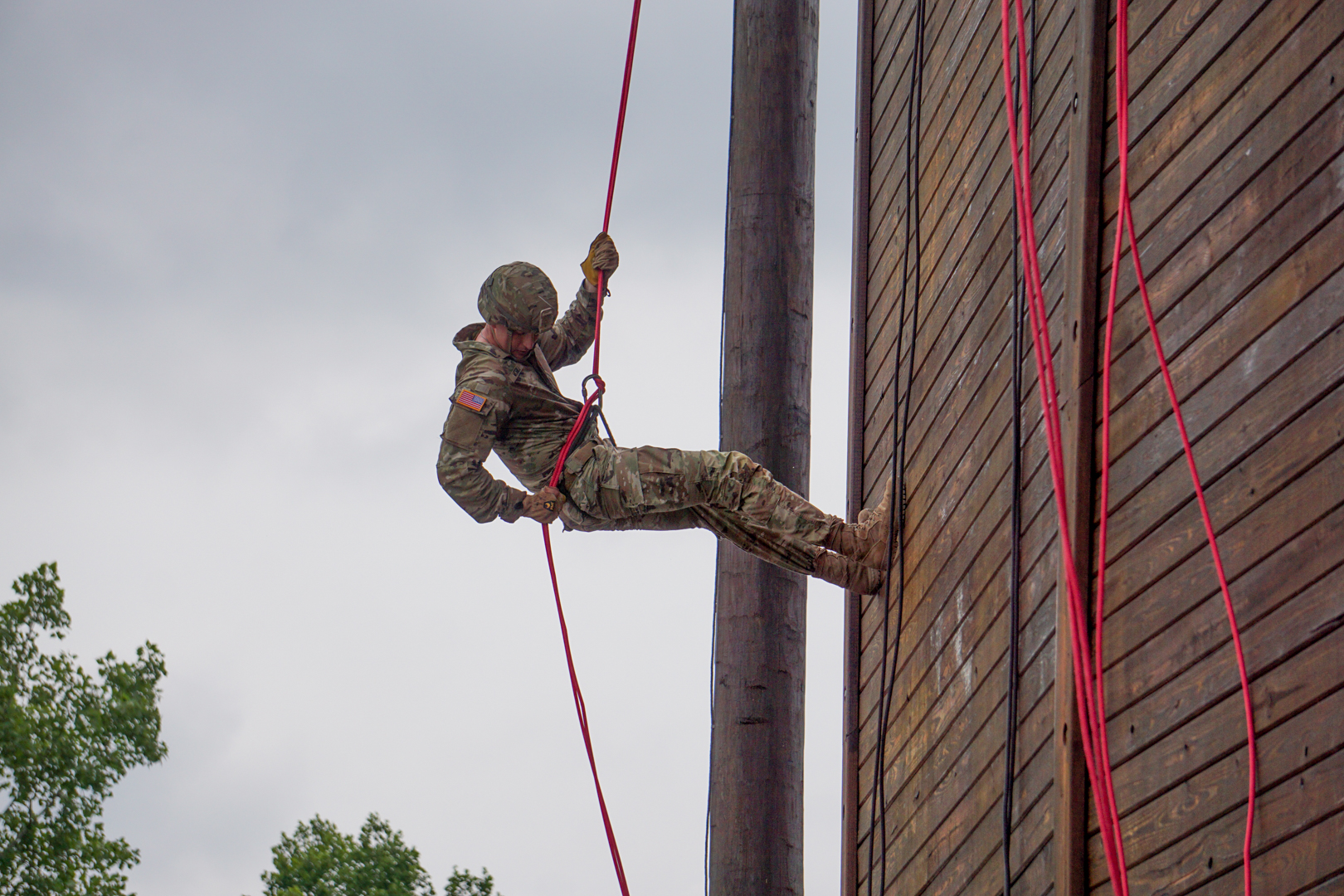FORT KNOX – Ky. – Between the sounds of simulated explosions and the shouts of Cadets calling to their battle buddies, Cadets from 6th Regiment, Basic Camp participated in Small Unit Tactics on July 20.
The purpose of small unit tactics is for Cadets to learn how to work cohesively in small squads during potentially combative situations.

Cadet Diamond Akers, Mercer University, runs towards a barrier before taking her position during small unit tactics on July 20 at Fort Knox, Ky. Photo by Emily Peacock
Here, Cadets worked on forward movement, moving in buddy teams, battle drills and formations, specialty teams and communication.
A buddy team is the smallest tactical element that Cadets learn to operate at. When Cadets participate in larger element movements, they can draw from their small unit tactics experience to operate efficiently.
In one specific exercise, a battle buddy pair would take turns advancing with their weapons in hand. One Cadet would yell, “cover me” while the other would respond, “I’ve got you covered.”
“Communication is the most important thing,” said Cadet Joshua Blanton, Radford University. “You have to be able to trust your battle buddy to know that he’s got your back in order to move.”
In small unit tactics, clear and concise communication is the foundation for building trust amongst Cadets. In the field, however, it can be the difference between life and death.
“If your platoon sergeant doesn’t disseminate information to you,” said Blanton, “your entire platoon could be in trouble. If you can communicate the you can get through anything.”

Cadets from 6th Regiment, Basic Camp participated in Small Unit Tactics on July 20 at Fort Knox, Ky. Photo by Emily Peacock
In addition to strengthening their communication, Cadets practiced forming wedge formations.
“In order to pick up and move we have to get into a wedge formation,” said Cadet Miranda Cardona, University of Illinois-Chicago.
Wedge formation is when Cadets fall into a V formation to ensure security from both sides when participating in forward movement.
“We use wedge formation when we’re in an open field and there’s a lot of space to cover,” said Cardona. “If we were to take contact, we’re not all bunched up in the same spot.”
When asked how small unit tactics contributed to the rest of their Cadet Summer Training, Cardona shrugged and said, “this is the basics of what you need to know when you’re out in the field. You never know what’s really going to happen.”
Ultimately, it’s rehearsing small unit tactics that prepares Cadets for the unexpected while their communication skills foster trust and confidence in each other.




